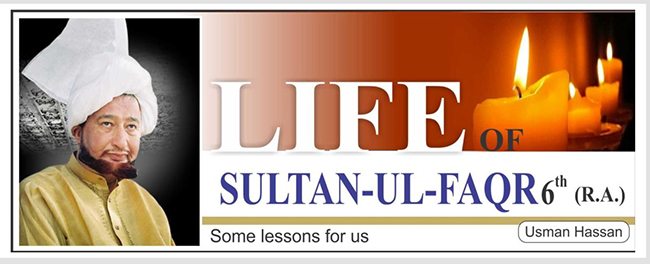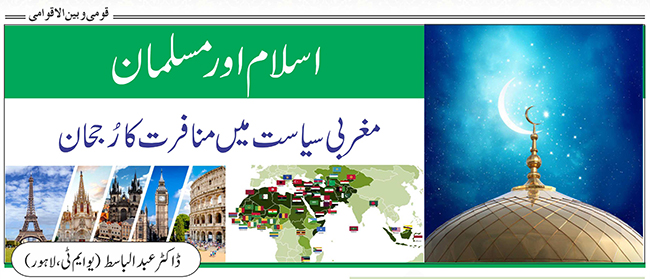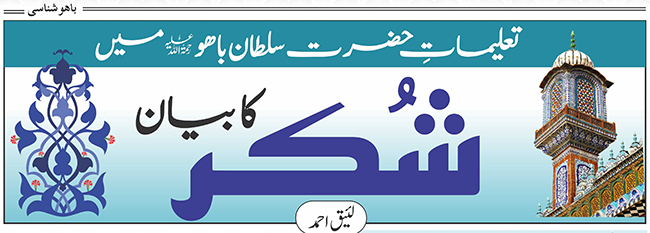Allah the most Honoured designated Prophets for the guidance of mankind who invited the mankind towards Allah and showed them the right path. The last in this series of Prophet-hood is our beloved and exalted Prophet Hadhrat Muhammad (ﷺ) and after Hadhrat Muhammad (ﷺ) this process of guidance continues through companions of Hadhrat Muhammad (ﷺ), companions of the companions of Hadhrat Muhammad (ﷺ), and their companions and pious friends-of-Allah (wali).
Whenever the spiritual, social, ideological, or cultural system of Muslims was at stake, Almighty Allah showed His abounding Mercy and designated some of His beloved personalities who guided the mankind to the right path. Such righteous friends-of-Allah would continue to emerge in all times and ages. Amongst these noble souls, is a spiritually accomplished and highly dignified personality, the crown of arifs, and the great founder of the Islahi Jamaat & Aalmi Tanzeem ul Arifeen, Hadhrat Sultan Muhammad Asghar Ali (R.A). This article sheds light on some aspects of his life.
Personality
The personality of Sultan-ul-Faqr (6th) Hadhrat Sultan Muhammad Asghar Ali (R.A.) is a practical actualization of the morals of Hadhrat Muhammad (ﷺ). Whoever came in his court, regardless of his colour and race, he received him with warmth, shook hands with him, and embraced him. He did not believe in superiority or inferiority. People who used to come to meet him, he would meet them with all his love and sincerity and they used to desire to meet him again and again. Due to his polite conversation, his listeners used to pay rapt attention to him and until his guests would leave to rest, he would never retire to relax.
Humility was hallmark of his personality. He was never found using the word ‘I’ for himself, instead he always preferred to use ‘the humble one’ for himself so his personality was a true depiction of the verse of exalted Quran, “And the servants of the Beneficent Allah are they who walk on the earth in humbleness.” With a lowered gaze, he used to walk humbly. Despite being endowed with the status of Sultan-ul-Faqr and possessing an abundant treasure of knowledge, he never asserted his intellectual superiority over any one. He had special regards for religious scholars. He used to dress up in clean clothes and his food was simple. He always maintained his state of ablution and he was a champion of generosity, openly as well as secretly. Whenever someone came with a physical or spiritual problem, he blessed the needy more than the needy ever requested. Whenever someone asked for financial help, very generously, he often gave away whatever his hands grasp from his own pocket. Similarly, his food spread was very wide and it was open for everyone. Even today people benefit from the meals served there.
Abidingness to Murshid (spiritual guide)
He acquired the treasure of Faqr (spiritual excellence) from his reverend father, the acme of arifs, Hadhrat Sultan Abdulaziz (R.A.). He was in profound love with his murshid so he exhibited immense respect and humility towards his murshid. His whole life was an epitome of obedience to his benevolent murshid. A great precedence of this devotion to his murshid is that for twelve years, he performed the duty of serving tea to his murshid at the time of Tahajjud prayer. He always maintained the sacred relation of murshid and talib (desirous of Allah) and it was never overborne by the family-relationship of a father and a son. He writes:
|
دل لا کے توڑ نبھاون ایہہ سخیاں دی چالِ |
“To walk one on the path of love and to take him to the destination is the custom of generous people.
Due to the contemplation of Glorious Divine-Name your body is the glorious being; your status is perfect.
Due to the blessing of Almighty Allah you have been bestowed a special level and state
You are the honour-preserver (lajpal) and you shall sanctify it for this humble.”
Following the path of his murshid, he travelled far and wide in the country all year round. He was an heir to the treasure of Faqr yet he abided by the spiritual-practices of his murshid throughout his life and never missed them. The seekers of spirituality (talibs), who turned to him, were always advised and taught to adhere to Glorious Divine-Name (Ism-e-Allah Zaat), so much so that before his departure from this world, despite severe ailment, he continued talking about Glorious Divine-Name. He is a role model for the talibs of Almighty in the dissemination of Glorious Divine-Name.
Fervent Love for Syedi Rasoolullah Hadhrat Muhammad (ﷺ)
His personality and disposition is reflective of his exuberant love for Hadhrat Muhammad (ﷺ). In order to endorse the love of our beloved Prophet (ﷺ), he initiated the organization of the annual Meelad (Congregation in the remembrance of the Birth anniversary of exalted Prophet (ﷺ)) on the shrine of Hadhrat Sultan Bahoo (R.A.) He also started country wide trip, associating it with the noble cause of Meelad which stands as a testimony of his love for exalted Prophet (ﷺ) and this practice continues today. His proceedings are not just a ritual but those are always characterized with message and purpose. He devoted his life for the service of the ummah of exalted Prophet (ﷺ). He was an ardent follower of Islamic-Divine-law (Sharia) of Hadhrat Muhammad (ﷺ). He also advised his followers to lead their private or public lives completely in accordance with the teachings and Islamic-Divine-law.
Faqr-i-Muhammadi (ﷺ) and the Renaissance of Sufism.
As in his reign Imam Ghazali ("Proof of Islam" i.e. Hujjat al-Islam) separated the Greek philosophy from sufism (and spirituality), Sultan-ull-Faqr (6th) breathed a new spirit into the ages old static hermitism and directed it towards the actual goal of its origin. He depicted the true picture of reality that real Tasawuf is based on the philosophy of Faqr propounded by exalted Holy Prophet (ﷺ). Hence he insisted on the practice of Tasawuf instead of its mere philosophical learning and perception. Like Hadhrat Syyed Abdul-Qadir Jilani (R.A.), who enlivened the spirit of the religion, Sultan-ul-Faqr (6th) resurrected the sufism in an age of turbulence. Thus, he showed the Muslims a direction to regain their lost heritage. According to him, the real source of Tasawuf is Islam and the Prophetic-tradition (Sunnah of exalted Holy Prophet (ﷺ)). The ideology comprising his philosophy of Faqr is evident from the revolution he brought about and that is a practical actualization of “Al-Faqr la yahtaj” (Faqr is carefree).
Pattern of Training/Guidance
He trained the seekers under his own supervision, according to the instructions given to Hadhrat Muhammad (ﷺ) by Almighty Allah in exalted Quran
یتلو علیہم آیتہ و یزکیہم و یعلمہم الکتاب و الحکمہ
i.e true seekers of Allah were taught and trained for inner-purification and launched into practical life to play a positively effective role in the lives of Muslim community. He always taught his disciples to seek Almighty Allah’s pleasure through their work. Their target should only be to win the acceptance of Allah. Their actions should be predominated by the thought of winning Allah’s happiness alone. Thus Sultan-ul-Faqr coveys the message to his followers that the way a man negates worldly desires, he must also refrain from nurturing the desire for Jannah or other rewards in heart. At the state of realization of monotheism (Tauheed) the attainment of world and the desire for the hereafter and the rewards associated with it are all considered alien?
Besides discarding the love of this world, man should also not confine his success after death to the attainment of Jannah. The heart that is purged of these desires, is destined to witness Divine illumine (noor) of Allah.
He used to pay special attention to children since an early age. Whenever the children of a companion came to meet him, he met them with love and gave them ample time (like adult visitors) and offered them sweets. Besides spiritual development, he also emphasized the mental and physical growth of children. He often held competitions among children to motivate to ensure their mental and physical development.
Vision
He devoted his life for reforming and upgrading the life of Ummah of exalted Holy Prophet (ﷺ) and for this purpose he laid the foundation of a universal revolution. The fact is beyond doubt that no revolution culminates until revolution emerges in the hearts of individuals. That is the reason, the pivotal centre of his teachings is an individual; as following verse of Allama Iqbal states:
|
تیری خودی میں اگر انقلاب ہو پیدا |
“Within yourself if the revolution takes place
Possibly the time may change also this space”
The ideology of Sultan-ul-Faqr (6th) is universal in nature and is free from the boundaries of time and space. It is not confined to a specific area or people and rather applicable to the whole mankind. That is why this revolution which is extended over four decades has made rapid progress with each passing phase and we cannot judge which point has been the apex of this movement. It has progressed with an amazing pace owing to its universal appeal. In 1987, he laid the foundation of Anjuman Ghosia Azizia Hazrat Haq Bahoo Sultan Pakistan Wa Alam-e-Islamld. After a year, he founded Islahi Jamaat. In 1999, Aalmi Tanzeem-ul-Arifeen (international organization of arifs) was established and with that, monthly ‘Mirrat-ul-Arifeen’ (international magazine) was launched to spread the message of this movement. Later on the inception of MUSLIM Institute, The Muslim Debate Forum and research Journal MUSLIM PERSPECTIVES are actually in line with his vision which is making an effort for the various schools of thought to find a solution of their problems through dialogue and argument.
A Universal and Impartial Movement
His movement is free from the prejudice of sect, language, geography, region, etc. Right from the beginning, he tried to gather the scholars from various schools of thought and the prominent figures from different linguistic and political backgrounds. The organization ‘Islahi Jamaat and Aalmi Tanzeem ul Arifeen’ is free from any label of sectarianism. The workers of this organization are heterogeneous. This is a strong evidence to prove that this movement has the immensity and capability to accommodate people from any school of thought, race, or creed. This also accounts for the popularity and success of any movement. His movement has emerged as a guardian of the spiritual, social, and moral values of the Ummah. It is working with rapid speed and with great pace.
Many influential people used to come to meet him and with great regards they used to offer presents and services but he never accepted any favour from them for his personal gains. He always motivated them to render a selfless service to Humanity, Pakistan, and Muslim Ummah.
Love for Pakistan
Sultan-ul-Faqr (6th) was born on 14th August 1947 and just because of this ‘Madina the second’ (Pakistan) is called the endowment of Faqr. He had a great love for Pakistan and always endeavoured to promote unity and harmony among the nation. His dress manifested the fact that he was against provincialism. That is why often his dress had various cultural touches including Sindhi-cap and Mushadi etc. He travelled far and wide in Pakistan and extended the circle of his organization. In congregational prayers, he used to pray for the prosperity, strength, and integrity of Pakistan. Besides, he also prayed for the liberation of Kashmir and Bait Al-Muqaddas. The Kashmir House, Philistine House, and Junagadh House at his place symbolise how he loved these areas and how he would make efforts for their independence. He believed in the implementation of law so he himself obeyed the law and also advised others to do so. He loved Quaid-e-Azam and Allama Muhammad Iqbal and his movement strives to promote the ideology of Pakistan and to strengthen it.
Unity of Muslim Ummah
Unity of Muslim Ummah was his ardent desire so he tried to gather the scholars from all schools of thought on one platform to sort out the challenges faced by Muslim Ummah. He always asserted to the religious thinkers and scholars that to combat the turmoil of this time, they needed to put their sectarian and all other differences at one side. He also invited political and social leaders to his platform so that they could also play their role for Pakistan and the Muslim world. He advised the individuals of Muslim Ummah to contribute in their individual capacity to face the challenges. Like Kashmir House, presence of Junagadh House and Palestine House at his Reverend Dwelling showcases an adamant association of his Movement with Muslim Ummah (globally). In continuity with his mission of creating harmony among Muslim Ummah, his successor Hadhrat Sultan Muhammad Ali is also trying to gather people from different backgrounds. Now MUSLIM Institute works in line with the same mission and tries to seek a solution, for the problems faced by Muslim Ummah, through research and dialogue.
His Message for the Youth
The youth has been the forerunner to join the movement and they have spread it enthusiastically just like the early days of Islam where following the announcement of Prophet-hood, the majority who embraced Islam consisted of youth. The youth today is fed up of materialism on one side and tired of sectarianism on the other side. This movement presents a viable solution to their confusion and provides them with platform where they can channelize their energy in a proper direction.
Internet Media has created an unimaginable mess and to save the youth from its harm, this movement has played a very effective role as they are being instructed to utilize their potential in positive and useful direction. This movement has also helped people- sickened by information technology and globalization of this time and age- by providing them spiritual solace and calm. After his demise his youthful sons have taken up the lead of this universal movement and set up a practical and realistic example of the message and mission.
٭٭٭




